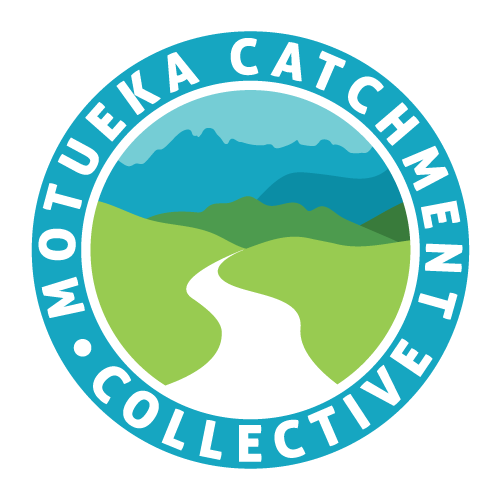Buzzing about native planting event
It was a stunning day for the Biodiversity and Restoration Group’s native planting workshop at Mahakaruna Farm and Education Centre in Ngātīmoti on May the 11th and it was a great turn out with 32 people attending.
Mahakaruna Farm is a 75-hectare Bio-Gro certified property in Ngātīmoti, within the Motueka catchment. The farm is in the process of establishing certified organic herb and vegetable market gardens, fruit, nuts and olives, an heirloom apple orchard, livestock and honey. The centre combines organics entrepreneurship, and will eventually feature several NZ-owned organic micro-enterprises. Read more about the farm and its facilities here – https://organic-ed.com/
Participants were shown around the farm where over 50,000 native plants have been planted. They discussed different methods used to establish natives and what it takes for planting to be successful. Tom Schafer, who works on the farm looking after the trees and has established a native nursery on the farm to grow natives for the farm and to sell. Tom gave a demonstration of planting technique (see photo below) and showed different types of spades.
Hannah Walker, a Motueka township resident who went to the workshop said:
“As an urban fringe dweller, I found this workshop really interesting. I learnt useful tips for native seed propagation and planting from the organisers and the local landowners (guardians)who showed us around their property. By listening to them, and walking on the land, I also realised how important it is to learn about your local patch of ground. Rima from the Marae was there which was a good reminder that local iwi have a deep knowledge of the Motueka catchment that is super important for planting and land regeneration. We’re so lucky to have such knowledgeable people willing to share their experience and wisdom. And I was very grateful for the lunch after all that brain work and walking!
Brad Howlett from Plant and Food then gave a talk via zoom about designing native plantings that might best optimise insect populations for pollination for pastoral farmers (clover pollination, crops) and horticulture (kiwifruit, apples) and for lifestylers, focused on pollination and beneficial insects.
Here is the recording of Brad’s presentation on native plantings that support Beneficial Insect Biodiversity:
Also a link to the questionnaire for the Beneficial Insect Biodiversity . The questionnaire aims to assess the drivers of landholders to establish native plantings and what role beneficial insects provide in that decision. It also provides an opportunity for landholders to receive updates on our research findings as they become available.
https://www.surveymonkey.com/r/W6FJDGZ

Last but not least there was the usual MCC BBQ as all that learning and walking was tough work!



